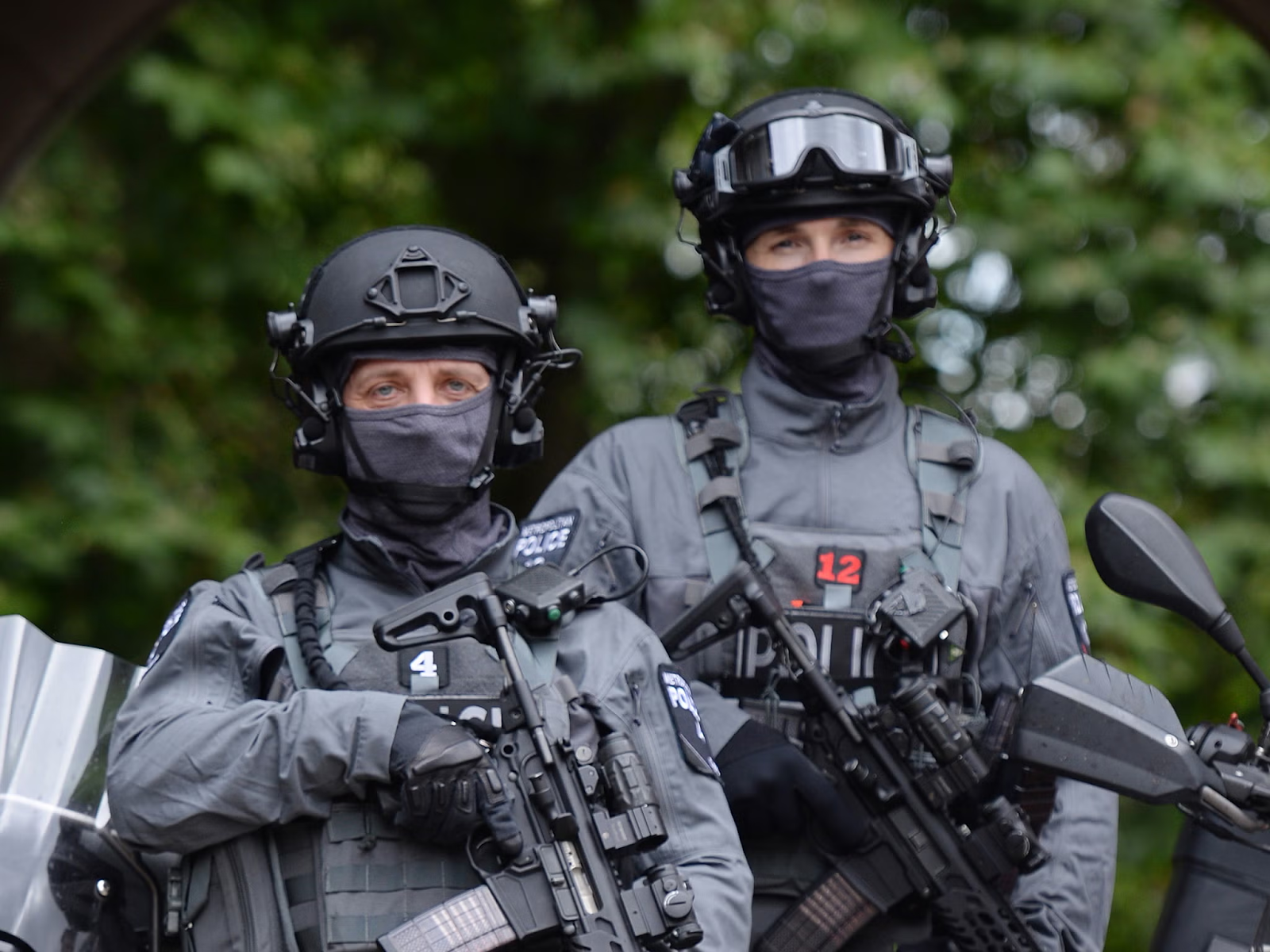Armed police units are specialized divisions within law enforcement agencies equipped to handle situations that involve serious threats to public safety. Regular police officers carry non-lethal weapons; armed police officers, on the other hand, respond to high-risk situations with firearms and other sophisticated armament. From counter-terrorism operations to managing armed robberies, these officers play a crucial role in maintaining law and order.
The Role of Armed Police
Armed police units are deployed in situations where there is a significant threat to life or serious crime. Their responsibilities include:
Responding to Hostage Situations: Armed police are trained to handle hostage situations, where negotiation skills and precision are paramount.
Counter-Terrorism: These units are often on the front lines during terrorist incidents, such as active shooter situations or bomb threats.
Armed Robbery Response: Armed police are called upon when dealing with armed criminals during robberies or other violent crimes.
Protective Security Details: Armed police often provide security for high-profile events, politicians, or public figures where the threat level is high.
Training and Selection Process
Not every police officer is qualified to be part of an armed unit. The selection process is rigorous and includes:
Psychological Evaluation: Candidates must undergo extensive psychological testing to ensure they can remain calm under pressure and make decisions in high-stress environments.
Firearms Training: Extensive firearms training is critical. Officers must demonstrate precision shooting skills, especially in scenarios that involve hostages or crowded public spaces.
Scenario-Based Drills: Officers are trained using simulations that mimic real-life situations, such as responding to a terrorist attack or an active shooter scenario.
Decision-Making and De-Escalation: Training also emphasizes de-escalation techniques. Officers are taught to assess situations carefully and use lethal force only as a last resort.
When Are Armed Police Deployed?
Armed police are not routinely deployed in most countries, especially where the general police force remains unarmed. However, they are called in for situations like:
Terrorism and Counter-Terrorism Operations: Armed police units are often on standby for any terrorist activities, especially in major cities and public events.
High-Risk Arrests: When criminals known to be armed and dangerous need to be apprehended, armed police are deployed to mitigate the risk to officers and the public.
Public Disorder: During large-scale riots or protests where violence is anticipated, armed police may be used alongside regular officers to maintain control.
Protection of VIPs: High-profile figures, such as political leaders, may require armed police escorts, particularly during public events or when facing credible threats.
Armed Police Around the World
The role and deployment of armed police vary widely across different countries. Here’s a look at how different nations handle armed policing:
United Kingdom: In the UK, regular police officers are not typically armed. Armed units like the Specialist Firearms Officers SFOs and the Armed Response Vehicles ARVs are called upon when firearms are required. These officers undergo rigorous training and are deployed in incidents involving firearms, such as shootings or armed standoffs.
United States: In contrast, most police officers in the United States are armed as a standard practice. Specialized units such as SWAT Special Weapons and Tactics handle high-risk situations like hostage rescues, counter-terrorism, and apprehending armed criminals.
France: French law enforcement includes specialized armed units like the GIGN National Gendarmerie Intervention Group and RAID Research, Assistance, Intervention, Deterrence, which deal with counter-terrorism, hostage situations, and high-risk arrests.
Australia: Australian police officers are generally armed, but specialized units like the Tactical Operations Unit TOU in New South Wales handle more dangerous and complex situations, including terrorist threats and sieges.
Public Perception of Armed Police
The presence of armed police is a topic of significant public debate. While some people feel reassured by the visibility of armed officers, others express concern about the potential for misuse of power or excessive force. Here are some of the main perspectives:
Public Safety and Reassurance: In areas with high crime rates or where terrorist threats are significant, the presence of armed police can provide a sense of security. Many people feel safer knowing that law enforcement has the tools needed to respond effectively to violent crime.
Fear and Intimidation: Conversely, in communities where there is tension between the police and the public, the sight of armed officers can increase fear and escalate tensions, particularly in areas with a history of police brutality.
Ethical Concerns: There are ongoing debates about when and how lethal force should be used. Concerns arise particularly in situations where innocent bystanders are at risk, or where suspects may not have been given adequate opportunities to surrender.
FAQs
What is the role of armed police?
Armed police are specialized law enforcement units equipped with firearms and trained to handle high-risk situations. Their primary responsibilities include counter-terrorism operations, armed response to serious crimes, high-risk arrests, and protection of important public figures and locations.
When are armed police deployed?
Armed police are usually deployed in situations where there is a significant threat to public safety, such as incidents involving firearms, armed suspects, or terrorist activities. They are also called for high-risk warrants, major public events, and situations where ordinary police officers are unable to safely manage a threat.
Do all police officers carry guns?
In many countries, not all police officers carry firearms. For example, in the UK, most police officers do not carry guns routinely, and only specially trained armed units are allowed to carry firearms. In contrast, countries like the United States have a majority of police officers armed as part of their regular duties.
Conclusion
Armed police units are an essential component of modern law enforcement, designed to tackle situations that pose significant risks to public safety. While their presence can be reassuring in times of crisis, it also raises questions about civil liberties and the appropriate use of force. As society continues to grapple with these issues, the role of armed police will remain a critical topic of public debate and policy-making.
To read more, Click Here .
